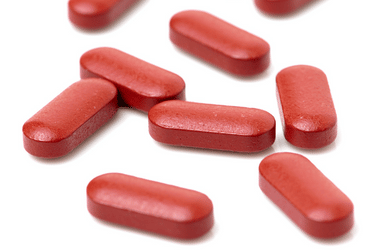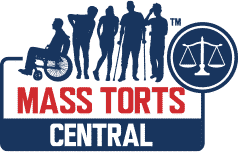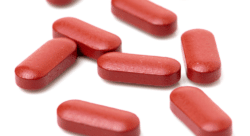What Kind of Cancer Does Zantac Cause?

Zantac is a medication that aims to treat heartburn and acid reflux. Over the years, researchers have discovered that Zantac made with ranitidine has N-Nitrosodimethylamine (NDMA). NDMA is a known carcinogen that can cause cancer if consumers ingest enough of it over time. Because of the dangers of NDMA, the U.S. Food and Drug Administration (FDA) requested the manufacturers of Zantac stop selling their products.
People who developed cancer because of Zantac use should have grounds to hold the manufacturers accountable. The company knew the drug’s potential risks, failed to warn the public, and continued selling it. Those taking legal action against the liable parties claim the kinds of cancer Zantac caused include bladder cancer, colon cancer, prostate cancer, kidney cancer, liver cancer, stomach cancer, and breast cancer.
Kinds of Cancer Potentially Caused by Zantac
Many people who have filed Zantac lawsuits do not have a family history of these types of cancers. Zantac use is the only possible cause of their developing cancer.
Scientists have linked using Zantac containing ranitidine to the following types of cancer:
Bladder Cancer
Per Mayo Clinic, bladder cancer typically starts in the cells that line the inside of the bladder. In many cases, doctors can diagnose bladder cancer at an early stage. When caught at an early stage, the cancer is still very likely treatable.
Unfortunately, bladder cancer can return even after successful treatment. Follow-up testing is necessary to ensure medical professionals detect it if it returns.
Symptoms of bladder cancer can vary from person to person, but they may include:
- Blood in the urine
- Back pain
- Frequent urination
- Painful urination
People who have taken prescription or over-the-counter Zantac with ranitidine have an increased risk of developing bladder cancer.
Colon Cancer
Colon cancer usually affects older adults. Because of this, at the age of 50, it is recommended to get regular colonoscopies. However, someone could develop colon cancer at any age.
Colon cancer typically begins as small, non-cancerous benign clumps of cells that form inside the colon, which makes up part of the large intestine. These clumps of cells are called polyps. While the polyps can start as non-cancerous cells, over time, the cells could progress into colon cancer. Colon cancer doesn’t show many symptoms in early stages. Usually, medical professionals catch colon cancer through screening tests.
If the colon cancer gets to later stages, someone could begin to exhibit symptoms, such as:
- A change in bowel habits that remains over time
- Blood in stool
- Any type of abdominal discomfort, such as cramps or gas
- Constant weakness and tiredness
- Sudden weight loss
Not only can Zantac use cause colon cancer, but it can also cause other issues in the gastric tract.
Prostate Cancer
Mayo Clinic states that prostate cancer is one of the most common types of cancer among men. These cancers grow slowly and typically stay within the prostate gland. The treatment for prostate cancer, if it remains in the prostate gland, requires minimal treatment. In some cases, though, this cancer is aggressive and spreads quickly. Early detection promotes successful treatments.
In the early stages of prostate cancer, there are no apparent symptoms. If it progresses, symptoms could include trouble urinating, blood in the urine, blood in the semen, bone pain, and erectile dysfunction. If you developed prostate cancer as a result of Zantac use, you may be eligible to file suit for your damages.
Kidney Cancer
Doctors can usually catch kidney cancer in its early stages when it is still small and only in the kidneys. However, in its early stages, there are typically no apparent signs or symptoms. Once cancer progresses, typical symptoms could include:
- Blood in the urine
- Pain in your back or side that is persistent
- Loss of appetite
- Tiredness
- Fever
Research studies have found evidence that the NDMA found in Zantac links to the development of kidney cancer.
Liver Cancer
Several types of cancer can form inside the liver. It is more common for cancer to spread to the liver as opposed to cancer originating inside the liver. People don’t show many signs of liver cancer in its early stages, but once it worsens, the Centers for Disease Control and Prevention (CDC) states that symptoms could include:
- Unexplained weight loss
- Loss of appetite
- Pain in the lower back
- Nausea or vomiting
- Weakness and fatigue
- Swelling in the ankles and legs
Some people could also show signs of jaundice, which is a yellow discoloration of the skin and the whites of the eyes. Zantac may cause liver cancer because of detected levels of NDMA in ranitidine products.
Stomach Cancer
Stomach cancer can begin in any part of the stomach. Where the cancer is in the stomach is a factor that determines how medical care professionals treat it. If cancer stays within the stomach, it is easier to treat. Unfortunately, stomach cancer medical professionals typically catch stomach cancer in its later stages, so it may be more difficult to treat.
People experience various symptoms when they have stomach cancer. According to Johns Hopkins Medicine, typical symptoms can include:
- Trouble swallowing
- Belly pain
- Feeling full after eating a small amount of food
- Nausea and vomiting
- Feeling tired often
- Black stool
- Losing weight without trying
It is common for someone to not feel symptoms until the cancer is more advanced. People who have taken Zantac regularly may have an increased risk of developing stomach cancer.
Breast Cancer
According to the CDC, breast cancer is the second most common cancer diagnosed among women in the United States. Early detection can help create a new personalized treatment plan for the disease. Symptoms of breast cancer include:
- A lump on the breast or thickening that feels different from the surrounding tissue
- Changes in the size, shape, or appearance of the breast
- If the nipple invert
- Redness or pitting of the skin on the breast
Zantac use can increase the risk of developing ductal carcinoma, which may trigger cancer cells to form and grow in the breast ducts.
What Kind of Cancer Does Zantac Cause: Research Continues
NDMA is the main chemical in Zantac that is known to cause cancer in animals. Because of the research on animals, researchers believe this can also cause cancer in humans. The NDMA levels can increase over time in ranitidine products. If a person stores Zantac at temperatures that are too high, it can significantly increase the amount of ranitidine.
The risk level of getting cancer from this product is still unknown. The link between Zantac and cancer is high enough, though, to where it is strongly recommended not to use the product. After getting diagnosed with cancer, inform your doctor of your Zantac with ranitidine use, as it could help them when developing your treatment plan.
Keeping doctor’s notes and medical records could help you qualify for the Zantac lawsuit if you’ve developed the aforementioned types of cancer. It is critical to have sufficient evidence to recover compensation for your losses.
What Is Zantac?
Zantac, made with ranitidine, treats or relieves heartburn, acid indigestion, GERD, and gastric ulcers. It is an over-the-counter medication, and a doctor can prescribe it if someone needs it in a larger dose. When stores sold Zantac, people of all ages could use the drug, even newborns.
Zantac is a histamine-2 (H2) blocker and works by reducing the amount of acid in the stomach. However, the FDA requested to withdraw it from the market in the United States because of traces of a known carcinogen, NDMA.
What Is NDMA?
NDMA is a volatile nitrosamine that contains toxic properties. Most people have exposure to NDMA through contaminated medications. The Environmental Protection Agency (EPA) classifies it as a probable human carcinogen. It is not produced in pure form or sold commercially except for research purposes, as it is an organic chemical that forms in both industrial and natural processes.
Chemical reactions during the formation of some drugs create NDMA. It is usually unintentionally produced. The oral route is typically the primary way humans have exposure to this chemical. Since NDMA is toxic to humans, they may experience adverse reactions, such as:
- Headache
- Fever
- Nausea
- Jaundice
- Vomiting
- Dizziness
Signs and symptoms of NDMA exposure usually don’t happen acutely, as they may occur after regular ingestion of the carcinogen.
Generic Zantac and Cancer: What Are the Cancer Risks of Ranitidine?
One of Zantac’s ingredients is ranitidine, which contains traces of NDMA. Researchers are still studying the cancer risks of ranitidine. However, at this time, there is information indicating even generic products made of ranitidine contain the probable carcinogen NDMA.
Many people who have taken Zantac have filed lawsuits against the manufacturers after they developed cancer. Generic Zantac has the potential to cause the same harmful effects as name-brand products. If you took generic Zantac and developed related cancer, an attorney could help you file a lawsuit against its makers.
Why Get Help From a Lawyer?
It is probable that the manufacturers of Zantac negligently continued to sell their product, knowing it could cause cancer. With a lot of people coming forward with lawsuits, the manufacturers of Zantac have hired legal counsel to defend against these claims. They are doing everything they can to avoid paying out the claimants’ damages.
If you developed cancer and had to go through painful treatments, you deserve to have a strong legal advocate on your side—you should not have to face the manufacturer of Zantac alone. There are many ways an attorney can help you through this process.
Since so many people have filed cases against the manufacturers of Zantac, the courts have combined some of the proceedings. An attorney can help ensure you follow the correct procedures to bring your case correctly. Ways an attorney can help you recover compensation after developing cancer from Zantac include the following:
- Filing a claim against the makers of Zantac
- Helping you gather evidence regarding your Zantac use and cancer diagnosis: attorneys have investigative skills and understand the type of evidence that is necessary for a claim or lawsuit to move forward
- Representing you through all of the proceedings—attorneys know how to build a solid case and present evidence to prove the connection between Zantac use and your cancer diagnosis
- Helping you maximize the compensation you recover by calculating your damages and gathering gather evidence to prove you incurred the damages you allege
- Handling all communication with the courts, legal teams, and others involved in your case
- Identifying and meeting state and federal deadlines
After reviewing the various services a product liability attorney may be able to provide for you, you may hesitate to hire one due to the high costs. However, many law firms that handle product liability cases work on contingency. That means they don’t require upfront costs and finance your case. They only receive a fee if they recover compensation for you, helping reduce your financial risk.
Get Help from a Mass Torts Law Firm That Cares
If you developed cancer because of Zantac use, you may benefit from retaining a legal advocate on your side. An attorney can work to prove you deserve the compensation you seek. You need a solid case for your claim to move through initial hearings. With a product liability lawsuit attorney representing you, they can help you get the compensation you need to recover from your losses.
Connect with a mass torts attorney in our network today by calling 1.844.44TORTS (1.844.448.6787) or filling out the contact form. Our mission is to help hold pharmaceutical companies, product manufacturers, and other organizations accountable for the injuries their products cause. We also inform the public about mass tort lawsuits and connect injured consumers with attorneys who can help them achieve fair outcomes.


